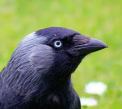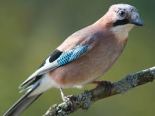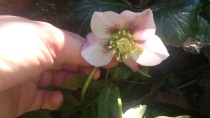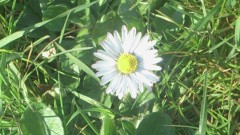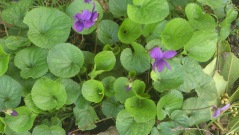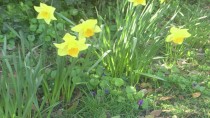Category Archives: Homeopathy
Feeling anxious? Feeling low? Feeling stressed? Homeopathy can help.
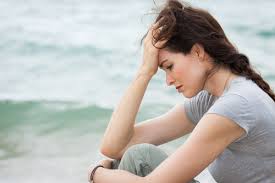 I’m sure many of us has been troubled by stress, anxiety or perhaps depression at some point in our lives. Maybe you feel you are in that place right now and don’t know how to change things or you know and care for someone who is stressed or anxious. I hope I can offer a little help in this blog. I speak from experience, not only as someone who knows what it feels like to be stressed and anxious but also, nowadays, as a therapist who has successfully helped many people deal with this condition. .
I’m sure many of us has been troubled by stress, anxiety or perhaps depression at some point in our lives. Maybe you feel you are in that place right now and don’t know how to change things or you know and care for someone who is stressed or anxious. I hope I can offer a little help in this blog. I speak from experience, not only as someone who knows what it feels like to be stressed and anxious but also, nowadays, as a therapist who has successfully helped many people deal with this condition. .
Anxiety or stress is a response triggered in the body as a reaction to a perceived or real threat – the threat can be physical, mental and / or emotional. Stress in certain situations is actually beneficial, as it gives the body the extra resources it needs to deal with the presenting problem. For example, feeling anxious about an upcoming interview or exam can actually heighten brain function and awareness and keep us alert and functioning at our best. However, if the response is out of balance with intensity of the situation, then our performance can actually be hindered. Getting the balance right is therefore important. If stress or anxiety becomes chronic, i.e. it becomes abnormally severe or prolonged and it impedes normal functioning, then finding some help is a good idea.
Mental health conditions have, in the past, been sensitive issues not always openly recognised or discussed. There used to be a stigma attached to owning up to depression and anxiety, but things, fortunately, are changing. Mental health and physical health are inextricably linked because our bodies work as a single interconnecting unit. Taking care of one is equally as important as taking care of the other. As a down side to the greater acknowledgement of the problems associated with stress and anxiety, is the increase in the number of people being prescribed anti-depressants, sleeping pills, sedatives and anti-histamines. These medications can affect some people adversely and cause problems in themselves. It is often difficult to stop taking these drugs.
Anxiety can show itself in a combination of any of these symptoms: Lack of energy and general apathy; Nervousness, fear and apprehension; Irritability; Nausea; Insomnia or disturbed sleep; Restlessness – mentally or physically; Lack of concentration; Over sensitivity; Increased perspiration; Palpitations; Loss of or increase in appetite; Diarrhoea; Faintness; Breathlessness; Loss of libido; Difficulty in swallowing; Numbness and tingling; Dizziness.
A holistic approach to dealing with Anxiety, Stress or Depression is the safest and most effective way of bringing the body back into balance and relieving the distressing symptoms. Homeopathy is one of the most popular holistic systems of medicine. The aim of homeopathy is not only to treat the anxiety or stress but to help the patient address the underlying causes. This might seem like an impossible task if you are the one actually suffering from the symptoms, but homeopathy can gently nudge your whole system back into balance and give you the energy, clarity and strength to tackle whatever it is that needs sorting out. I would advise seeking the help of qualified homeopath, who not only can work out an individualised treatment plan and appropriate remedies tailored to individual needs, but can also offer support and guidance throughout the whole process back to health.
There are many Homeopathic remedies that can be used to help the symptoms of Anxiety and Stress, some of which can be used for acute or emergency situations. I see no value in listing these remedies here but I am more than happy to advise or help with remedy selection. Just get in touch by any of my contact methods that best suits you.
In addition to Homeopathic treatment, some other beneficial therapies include Reflexology, Aromatherapy, Hydrotherapy, Relaxation therapy, Massage therapy, Acupressure, Psycho therapy and Yoga.
I would highly recommend Meditation, as it is a very calming and healing practice that can be simply learnt. Having a few minutes a day, in a state of quiet reflection helps to recharge the batteries and to give some insight into how to move forward. Guided visualisations can also offer this release and bring a sense of peace to an otherwise depleted energy. Even just setting aside a short time (longer if at all possible) to listen to some relaxing music can help you to ‘de-stress’.
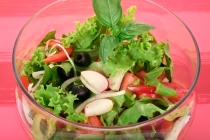 A good healthy diet is essential. The food we eat is the fuel that out body runs on. Poor quality food results in poor performance and lack of energy. Try and eat as much raw food as possible – fruit, salads and vegetables. Source organically grown food where possible and avoid processed and refined foods. Limit sugary foods – they can fuel feelings of depression and anxiety. Try to drink plenty of water – filtered is the best option; if water isn’t your ‘thing’, try and drink herbal, fruit and/or green teas. Water helps the body to detox and eliminate unwanted substances. These increase and intensify during periods of stress and anxiety.
A good healthy diet is essential. The food we eat is the fuel that out body runs on. Poor quality food results in poor performance and lack of energy. Try and eat as much raw food as possible – fruit, salads and vegetables. Source organically grown food where possible and avoid processed and refined foods. Limit sugary foods – they can fuel feelings of depression and anxiety. Try to drink plenty of water – filtered is the best option; if water isn’t your ‘thing’, try and drink herbal, fruit and/or green teas. Water helps the body to detox and eliminate unwanted substances. These increase and intensify during periods of stress and anxiety.
Maybe consider some supplements. I can only suggest things that I know have helped me and others I have worked with. Advice from a suitably qualified nutritionist is a good idea. Think about Vitamin B supplements, organic Virgin Coconut Oil, Probiotics, Ginseng, Ginkgo and Spirulina to name but a few. There are also many very useful essential oils that can help relaxation and sleep. My favourites include Frankincense, Lavender, Bergamot, Patchouli, Wild Orange and Sandalwood.
And last but not least – is exercise. I don’t mean you’ve got to go out running every day, not unless that is what you feel like doing. Getting out into the fresh air is very therapeutic, particularly is you can go to somewhere where there is some wildlife, some trees or grass, some water like a lake, a river or the sea. Go for a walk and appreciate nature wherever she appears. Perhaps try some Yoga, go swimming, a gentle cycle ride and some ‘rebounding’ (very good for circulating the lymph in the body). Whatever you choose to do will have an uplifting effect – try it and see!!
I hope that my thoughts and advice on this has given you some positive ideas about where to start to change things or how to help and encourage someone else to a better space.
Relaunch of my website
I have been busy over the summer, recreating my website. If you have got to this blog from anywhere apart from my website – have a look at www.homeopathy4life.net !!
Although I have learnt a tremendous amount about computers over the years, the world of websites and how to maximise their usefulness and appeal is a new area of learning for me.
I am keen to reach out with the ‘homeopathic’ message to anyone who is receptive to or is seeking the information.
I am yet to be convinced how social networking can enhance my life (or business) – but, as always, I am willing to learn and be convinced!
I am going to try and keep this blog reasonably up to date and post some items that you may find interesting or informative.

